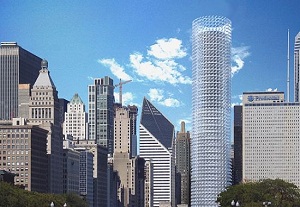New Illinois energy bill includes some solar incentives
 When the Illinois legislature voted earlier this week to override Governor Pat Quinn’s veto of Senate Bill 1652, it paved the way for greater solar energy development in the state.
When the Illinois legislature voted earlier this week to override Governor Pat Quinn’s veto of Senate Bill 1652, it paved the way for greater solar energy development in the state.
The bill, titled the Energy Infrastructure Improvement Act, introduces tougher utility performance standards and provides payment assistance for low-income families. But the trailer bill introduced last week includes provisions and new policies that will encourage further renewable energy and especially solar energy development in Illinois.
“This is not spectacular legislation,” said Mark Burger, president of the Illinois Solar Energy Association. “But it is an improvement in the policy environment that is certainly going to signify that solar companies ought to get serious about Illinois.”
There are three major policy improvements included in the bill and its trailer that haven’t been fully approved yet because of issues with the legislation being part of a veto override, Burger said. But those three improvements include in increase in the size of solar projects eligible for incentives from 40 kilowatts to 2 megawatts, which will greatly benefit larger commercial projects.
The legislation also includes carve-outs for small-scale distributed generation projects under 25 kilowatts. The legislation requires that a minimum amount of energy comes from small-scale distributed generation solar. Another percentage will be range from 25 kilowatts to 2 megawatts.
“The idea behind that is that without the size delineation, the only things that would be built are the big solar farms,” Burger said.
The other element is an increase in the goal for the percentage of energy coming from solar from 1 percent to 5 percent.
“That’s largely symbolic at this point since right now we only have one tenth of 1 percent of energy coming from solar,” Burger said.
One benefit to the new legislation is that it’s completely policy-based and there are no financial solar incentives that could be taken away.
Illinois still has a lot of work to do, Burger said. But the Senate Bill 1652 and its trailing legislation will make a dent.
Pictured: An artist’s rendering of Zoka Zola Architecture’s sustainable solar-powered tower for Chicago, which incorporates an active solar array mounted on the building’s façade.



